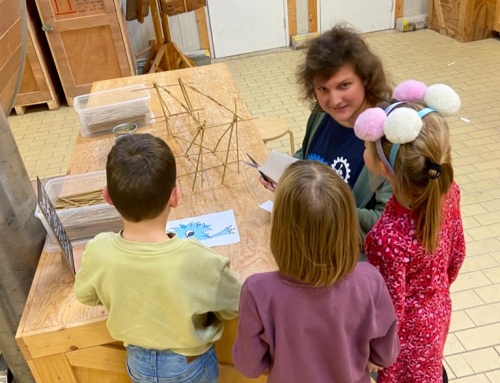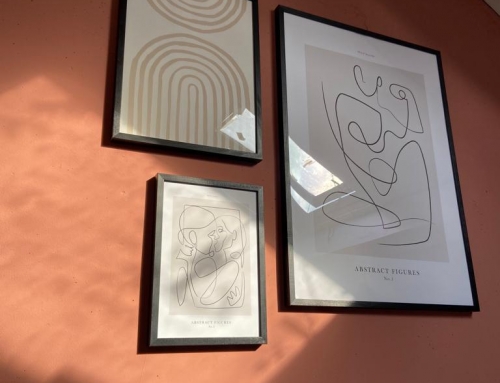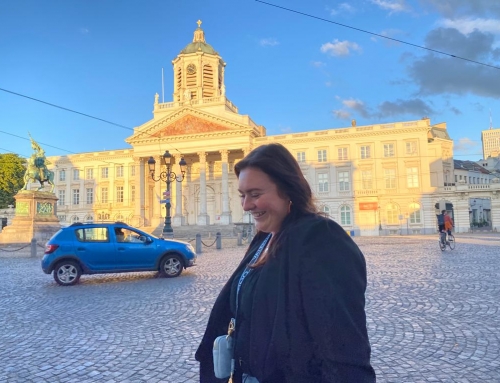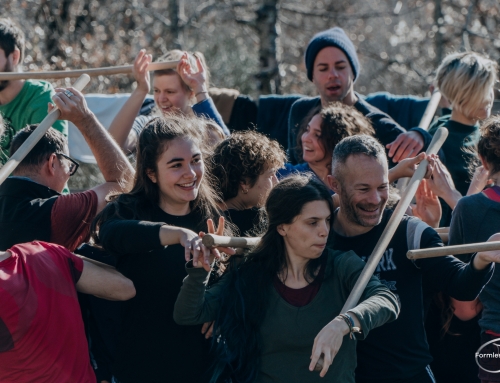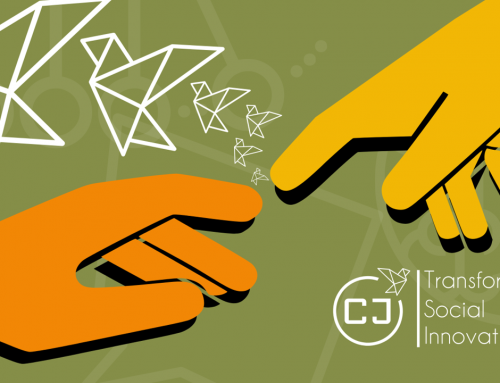
Our society is in a continuous process of change, innovation, and shifts within its patterns and systems. Opportunities, threats, and other unforeseen activities occur within a second and this make it extremely complex to stay on track. We are influenced by multiple factors in our environment that we can never fully understand. That is a good way to describe the complex world we are experiencing in this part of the 21st century.
This complexity is interwoven in many social challenges, complex issues and other transformations and innovations. Complexity is adjustable to each situation and therefore, appears in every domain and/or structures such as social, economic, cultural, and so on. Thus, Transformative Social Innovation can be a crucial change maker. Transformative Social Innovation is about improving the social interaction between people in such a way that they embrace or come up with new ideas, perspectives or solutions (Performatory, 2019).

Who am I?
My name is Sabien van Dijk and I am developing myself as a Transformative Social Innovator. During the past years, I researched a variety of topics regarding Transformative Social Innovation such as inclusivity in society, play and creativity in business, crisis management, and the influence of energy in a living system. All these topics are interrelated to the same focus point which is: creating a sustainable change on how to positively respond and continue during a crisis. I believe and aim for sustainable transformations in these complex societal challenges.
Taking on these challenges is not something you can do on your own as a Transformative Social Innovator. To do so, you need three elements namely a social challenge that requires a shift, an affected person/organisation who dares to take the risk to transform and other involved stakeholders to the matter.
Flourish in messy situations
Flash forward to the current situation, we are in uncertain times. In a broad sense, I wonder why some are so affected by crisis and why others are dealing with it to turn it into their best year. When it comes to a crisis, companies and individuals often experience difficulty in finding their way on how to co-operate with the element that is holding them back. They believe it is out of their hands and that they are doing whatever they can.
I believe that in times of crisis, the opportunities society offers you are overwhelming. It all depends on your perspective. I believe that a crisis creates opportunities for innovation, co-creation and transformation when you acknowledge its possibilities.
Undoubtedly, it is not as easy as it seems. When things become overwhelming, we easily lose control of who we are and who we want to become. We go into this survival mode where we only see one way out and that is the should focus point. We focus on achieving this goal, without seeing what is happening around us. I would like to make a change in this pattern behaviour, even if it is small. Therefore, I have two approaches in mind namely bottom-up and/or top-down. There is no wrong or right with one of these approaches, they only follow a different path. The following example will show this continuous process.
‘The amount of potential you tap into determines the amount of action you take. The amount of action you take determines the results you get. The results you get determine the belief in yourself. The amount of belief you have determines the amount of potential you can tap into. It is a self-fulfilling prophecy.’ (Robbins, N.D.)
Experience
Throughout my previous researches, I have explored the social dilemma of a crisis that brings out the best or the worst in people. I mainly focussed on a sociological perspective which led me to positively looking to opportunities during a crisis. With a community-based approach within this bottom-up cycle, I believe we can collaboratively strive for a stronger living system during and after a crisis. This all adds to my goal of creating a sustainable change on how to positively respond and continue during a crisis and add to promoting just, peaceful and inclusive societies (United Nations, 2015).
I believe this challenge could not be more relevant now during this pandemic. During the past years, I have explored my interests within various domains and gained experience in these domains by researching, exploring, trying and working on these topics. Until a short while ago, I was uncertain about what my contribution would be to this challenge. Now, I am committed to creating a transformation in a system focussing on flourishing during a crisis instead of working against it. I believe in bringing different social groups together such as minorities and majorities to co-design a transformation.
For me, as a Transformative Social Innovator, I would focus on improving the social interaction, systems and patterns between people in such a way that they embrace or come up with new ideas, perspectives or solutions. Innovations that tackle social, economic, environmental, and/or cultural challenges that occur due to crisis. I want to connect people and organizations, facilitate the process of co-designing and co-creating, and collaboratively create a transformation in this challenge.
Believing in this approach also makes me realize that we have to deal with different challenges during this complex problem. Creating a sustainable change starts with the first drop to create a ripple afterwards. I believe in taking a risk during this process to deep dive and find the challenge behind the challenge. To do so, you need the support of the majority to support your ideas.
Call to action
Using my expertise as a Transformative Social Innovator to create a shift in this challenge would be my final stage of discovering myself as a professional while studying. I want to challenge you as a person and your organisation to explore different opportunities and dare to take a risk to evolve for a better world. Seeing the potential of what is there, a risk to take any action, create a change by seeing a result and making other belief and empower them to contribute to this challenge as well.
Do you dare to take a risk to collaboratively strive and work towards a sustainable change on finding a positive effect of the crisis for your company and add to just, peaceful and inclusive societies? Let’s get in contact and explore how we can evolve together.
Bibliography
Performatory. (2020). Home. Retrieved 8 December 2020, from https://www.performatory.nl
Robbins, M. A. (2016, March 1). A life-cycle model with ambiguous survival beliefs. Retrieved 8 December 2020, from https://www.sciencedirect.com/science/article/abs/pii/S0022053115002100
United Nations. (2015). Goal 16 | Department of Economic and Social Affairs. Retrieved 8 December 2020, from https://sdgs.un.org/goals/goal16
Zourdoumis, P. (2016, September 18). Applying Cynefin Complexity Theory to Mediation | ODR – Online Dispute Resolution. Retrieved 8 December 2020, from http://www.odreurope.com/news/articles/mediation/1285-applying-cynefin-complexity-theory-to-mediation

